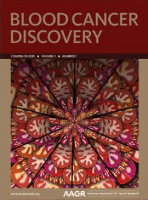
Blood Cancer Discovery
Scope & Guideline
Uncovering Breakthroughs in Blood Cancer Science
Introduction
Aims and Scopes
- Hematologic Malignancies Research:
The journal emphasizes research specifically related to blood cancers, including leukemia, lymphoma, and myeloma, providing insights into their biology, genetics, and treatment. - Translational and Clinical Studies:
Blood Cancer Discovery publishes studies that bridge the gap between laboratory research and clinical application, focusing on how discoveries can be translated into effective therapies for patients. - Novel Therapeutic Strategies:
The journal highlights innovative therapeutic approaches, including immunotherapy, CAR T-cell therapy, and targeted therapies, aimed at improving outcomes for patients with blood cancers. - Molecular and Cellular Mechanisms:
Research on the underlying molecular and cellular mechanisms driving blood cancers is a core focus, including studies on mutations, signaling pathways, and the tumor microenvironment. - Patient-Centric Research:
The journal promotes research that addresses patient outcomes, treatment responses, and the development of personalized medicine strategies in the context of hematologic malignancies.
Trending and Emerging
- Immunotherapy and CAR T-cell Advancements:
Recent publications emphasize the development and optimization of immunotherapy strategies, particularly CAR T-cell therapies, illustrating a strong trend towards enhancing efficacy and minimizing toxicity in blood cancer treatments. - Genetic and Epigenetic Insights:
There is a growing focus on understanding the genetic and epigenetic alterations associated with blood cancers, which is crucial for developing targeted therapies and personalized medicine approaches. - Clonal Hematopoiesis and Its Implications:
Research on clonal hematopoiesis, including its role in cancer progression and treatment outcomes, is increasingly prevalent, highlighting its significance in the understanding of hematologic malignancies. - Microenvironmental Interactions:
Emerging studies are exploring the interactions between cancer cells and their microenvironment, including immune cell dynamics and extracellular vesicles, which are critical for understanding tumor behavior and treatment resistance. - Single-Cell and Multiomic Approaches:
There is an uptick in the use of single-cell sequencing and multiomic profiling to unravel the complexities of blood cancers, enabling more precise characterization of tumor heterogeneity and treatment responses.
Declining or Waning
- Traditional Chemotherapy Approaches:
There is a noticeable decline in publications focusing solely on traditional chemotherapy methods, as the field has increasingly shifted towards targeted therapies and immunotherapies. - Basic Science Without Clinical Relevance:
Research that does not have immediate translational implications or clinical applications appears less frequently, reflecting the journal's emphasis on studies that can directly impact patient care. - Exploratory Studies with Limited Novelty:
Papers that primarily serve as exploratory studies without significant new findings or contributions to existing knowledge are becoming less common, as the journal seeks more impactful research.
Similar Journals

Experimental Hematology & Oncology
Illuminating Pathways in Blood Disorders and Cancer TreatmentExperimental Hematology & Oncology is a premier journal published by BMC, dedicated to advancing knowledge in the fields of hematology, oncology, and cancer research. Since its inception in 2012, this Open Access journal has emerged as a vital resource for researchers and healthcare professionals, fostering the dissemination of high-quality research that enhances our understanding of blood disorders and malignancies. With impressive rankings in Quarters 1 of key categories including Cancer Research, Hematology, and Oncology, it holds significant prestige, evidenced by its Scopus rankings: #42/404 in Medicine (Oncology) and #17/137 in Medicine (Hematology). The journal aims to publish cutting-edge studies, reviews, and perspectives that contribute to the evolution of therapeutic strategies and innovative treatment modalities. Researchers and practitioners alike will find this journal indispensable for staying at the forefront of breakthroughs in hematological and oncological research.
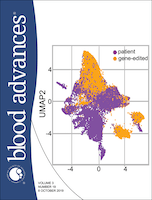
Blood Advances
Advancing the Frontiers of HematologyBlood Advances is a premier, peer-reviewed journal published by Elsevier, dedicated to the field of hematology. With an impressive impact factor and classified within the Q1 category of hematology for 2023, it ranks as the 16th out of 137 journals in the Scopus Medicine Hematology category, placing it in the top 88th percentile globally. This influential journal, which has been disseminating invaluable research since its inception in 2017, focuses on advancing knowledge and innovation in blood science, including clinical and laboratory aspects of hematology. Although it offers limited open access features, its comprehensive scope encompasses various topics relevant to both researchers and practitioners. Located in the United States and managed from Amsterdam, Blood Advances provides a vital platform for the dissemination of groundbreaking research, making significant contributions to the understanding and treatment of blood disorders. Researchers, professionals, and students alike will find this journal an essential resource for keeping abreast of the latest developments and advancements in hematology.
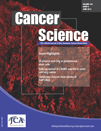
CANCER SCIENCE
Leading the charge in innovative cancer treatment solutions.Cancer Science, an esteemed journal published by Wiley, stands at the forefront of oncology research, boasting an impressive impact factor and a classification in the Q1 category for its contributions in Cancer Research, Medicine, and Oncology as of 2023. Since its inception in 2003 and transitioning to an Open Access model in 2014, the journal has facilitated global dissemination of critical research findings, ensuring that vital information remains accessible to researchers, clinicians, and students alike. With its comprehensive scope covering cutting-edge discoveries in cancer biochemistry, genetics, and molecular biology, Cancer Science is recognized for its rigorous peer-review process and significant contributions to advancing our understanding of cancer. The journal, located at 111 River St, Hoboken, NJ, is an essential resource for anyone dedicated to improving treatment outcomes and pushing the boundaries of cancer research.
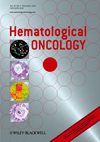
HEMATOLOGICAL ONCOLOGY
Illuminating Innovations in Hematological MalignanciesHEMATOLOGICAL ONCOLOGY, published by Wiley, is a premier journal in the fields of cancer research, hematology, and oncology, with a rich history of publication dating back to 1983. With an impact factor indicative of its influential standing—ranking in the second quartile in multiple categories including Cancer Research, Hematology, and Oncology—this journal serves as a vital resource for researchers, clinicians, and students alike. HEMATOLOGICAL ONCOLOGY is based in the United Kingdom and focuses on the advancements and challenges in the understanding and treatment of hematological malignancies. While it does not offer open access options, its rigorous peer-review process ensures that all published articles are of the highest quality, contributing to the ongoing dialogue and research in this critical area of medicine. With its commitment to disseminating impactful research, HEMATOLOGICAL ONCOLOGY remains an essential platform for driving innovation and collaboration within the global scientific community.

CELLULAR ONCOLOGY
Transforming Oncological Research Through CollaborationCELLULAR ONCOLOGY is an esteemed open access journal published by SPRINGER since 2004, specializing in the dynamic field of oncological research. With its ISSN 2211-3428 and E-ISSN 2211-3436, this journal plays a pivotal role in disseminating cutting-edge findings and innovative methodologies that address cancer at the cellular level. The journal has consistently achieved high-impact recognition, currently holding a Q2 rating in Cancer Research and Q1 rankings in Medicine (miscellaneous), Molecular Medicine, and Oncology as of 2023. Furthermore, it ranks 56th in oncology medicine and 48th in cancer research according to Scopus, placing it firmly within the top echelons of its field. Published in the Netherlands, with an aim to connect scientists, clinicians, and practitioners worldwide, CELLULAR ONCOLOGY fosters a collaborative environment for researchers to share insights, enhance understanding, and advance treatments. The journal’s open access model ensures that ground-breaking research is freely available, facilitating greater visibility and impact within the scientific community and beyond.
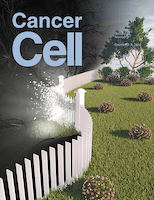
CANCER CELL
Where Excellence Meets Cancer ResearchCancer Cell, published by Cell Press, represents a pinnacle of research in the fields of cancer research, cell biology, and oncology. With an impressive Impact Factor and ranking as Q1 in prestigious categories for both 2023 and previous years, this journal stands out as a vital resource for professionals and scholars dedicated to understanding the molecular underpinnings of cancer. Operating from Cambridge, MA, Cancer Cell has been an essential platform for innovative studies since its inception in 2002. Although it is not an Open Access journal, its rigorous peer-review process ensures that only the highest quality research is disseminated to the scientific community. Readers can expect to find a wealth of knowledge ranging from cutting-edge therapies to insights into tumor biology, thereby contributing significantly to the advancement of oncology. With rankings placing it among the top echelons of related fields—#2 in Cancer Research and #6 in Oncology—Cancer Cell is an indispensable reference for anyone committed to the fight against cancer.

Wspolczesna Onkologia-Contemporary Oncology
Advancing Cancer Care Through Open Access ResearchWspolczesna Onkologia - Contemporary Oncology is a leading open-access journal dedicated to the field of oncology and radiology, published by TERMEDIA PUBLISHING HOUSE LTD since 1999. With its ISSN 1428-2526 and E-ISSN 1897-4309, the journal has established a prominent place in scholarly publishing, contributing significantly to the advancement of cancer research and treatment modalities. Located in Poznań, Poland, it operates within a framework of high academic standards, currently holding a Q3 quartile ranking in Oncology and Q2 in Radiology, Nuclear Medicine, and Imaging for the year 2023. The journal serves as a valuable resource for researchers, medical professionals, and students alike, providing a platform for innovative studies and reviews that drive the clinical application of oncological practices. With its commitment to open access, Wspolczesna Onkologia allows for widespread dissemination of knowledge, ensuring that cutting-edge research is accessible to a global audience, thus bridging gaps in cancer care and fostering collaborative advancements in the field.

NEOPLASMA
Elevating Knowledge in Oncology and BeyondNEOPLASMA is a prominent journal published by AEPRESS SRO, dedicated to the multifaceted field of oncology and cancer research. Since its inception in 1957, this esteemed publication has served as a vital platform for advancing the understanding of neoplastic diseases, disseminating high-quality research findings that contribute to clinical and laboratory advancements. Operating under a robust framework of peer review, NEOPLASMA holds significant credibility, as evidenced by its Q2 ranking in the Medicine (miscellaneous) category and Q3 rankings in both Cancer Research and Oncology for 2023. Furthermore, with an ISSN of 0028-2685 and E-ISSN 1338-4317, the journal fosters accessibility to valuable scientific content despite the absence of open access options. Positioned in Bratislava, Slovakia, NEOPLASMA continues to attract a global readership, making substantial contributions to the fields of biochemistry, genetics, and molecular biology as highlighted by its Scopus rankings. This journal is essential reading for researchers, professionals, and students looking to stay abreast of the latest developments in cancer research and treatment strategies.
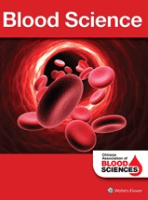
Blood Science
Transforming Understanding of Blood-Related Health IssuesBlood Science is a distinguished peer-reviewed journal published by Lippincott Williams & Wilkins, focusing on the dynamic field of hematology. Since its inception, the journal has aimed to disseminate high-quality research and innovative findings that contribute to our understanding of blood-related health issues. With the ISSN 2543-6368, it offers a platform for academic discussions and breakthroughs in various subfields including hematopathology, blood disorders, and transfusion medicine. As of 2023, Blood Science is ranked in the third quartile (Q3) within the hematology category, indicating a burgeoning influence among its peers, with a Scopus rank of #101 out of 137 journals, placing it in the 26th percentile. Although it is not an open-access journal, it provides essential insights and valuable data for researchers, healthcare professionals, and students alike, enhancing the collective knowledge and practices in hematology. With a publication period spanning from 2019 to 2024, Blood Science remains committed to fostering the advancement of blood science research and enhancing patient care methodologies.
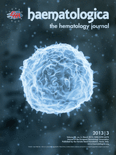
HAEMATOLOGICA
Connecting Scholars: Shaping the Future of HematologyHAEMATOLOGICA, published by FERRATA STORTI FOUNDATION, is a prestigious journal in the field of hematology, recognized for its high impact and contribution to advancing research in this critical area of medicine. With an impressive Q1 ranking in the 2023 category of Hematology and a notable Scopus rank of #12 out of 137, the journal serves as an essential platform for disseminating innovative studies, clinical trials, and comprehensive reviews from 1947 to 2024. Based in Italy, with a commitment to quality and academic integrity, HAEMATOLOGICA fosters collaboration among researchers, practitioners, and students interested in the latest developments and methodologies within hematological science. Although it does not offer open access, the journal ensures that valuable insights are accessible through institutional subscriptions, emphasizing its role in shaping the future of hematologic research.